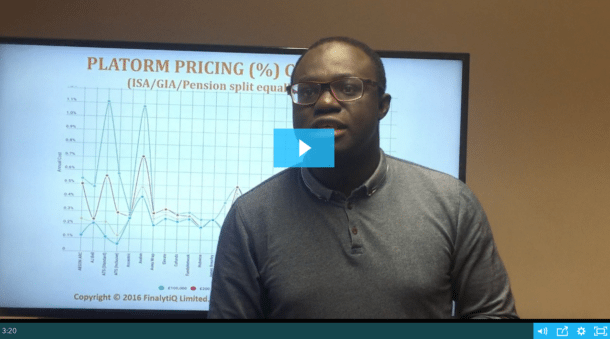Following reports by Sky News over the weekend that Old Mutual Wealth is up for sale, I’m probably not the only one left wondering which platform isn’t actually up for sale? OK.. OK.. I know there are but a few…
Apparently, in a bid to break up the parent company Old Mutual group, two leading private equity (PE) firms Cinven and Warburg Pincus have tendered a bid to buy Old Mutual Wealth, which consists of the OMW platform, advisory network Intrinsic, QuilterCheviot and OMGI.
The thought of PE getting their hands on a business as diverse as OMW sends shivers down my spine. It should yours too. There’s nothing PE boys enjoy more than breaking things up, ostensibly to unlock ‘value’. More so a fat-and-juicy (that’s a technical term for ‘inefficient’) business like OMW with lots of different parts.
Clearly, this restructuring has been in the offing for some time, because there’s very little synergy between a South African bank and financial services group, a UK based wealth management business and predominantly US based institutional asset management business. This explains the recent sale of the group’s fixed income manager Rogge Global Partners to Allianz.
Yet a perfect storm of regulatory pressures appears to be a major driving force behind this. Enter Solvency II, which among other things requires insurers to hold more capital to reduce the risk of ehrr.. ehrr… insolvency. Solvency II is prompting insurers to review their businesses and forcing them to reconsider underperforming platform businesses – L&G recently sold its SIPP business Suffolk Life and evidently trying to offload Cofunds as well. Axa’s trying to offload its wealth business, including Elevate.
Apparently, Old Mutual is unable to count surplus capital in its South African business towards the group solvency ratio. So the proposed demerger servers the umbilical cord between the insurer and the wealth business, making it easier for the insurer to meet Solvency II cap adequacy rules but that means the wealth business will have to stand on its own two feet! The problem with this is that the big great vertical integration experiment may come unstuck before it’s even began. It will depend on whether the new PE owners believe that the loss-making OMW Platform and advisory business Intrinsic are key to the success of the asset management business OMGI and QuilterCheviot! And with no parent company to rely on, every part of the business will need to pull its own weight and this may be particularly problematic for the platform and advisory business!
The asset management business is the main cash cow in the OMW vertical integration experiment; the idea is that the platform and the advisory business don’t necessarily have to be profitable on their own, so long as they funnel assets into the OMGI and QuilterCheviot. Yet, as the asset management business comes under increasing pressure, specifically from MiFID II and FCA asset management review, the bean counters might begin to wonder if the burden of loss-making platform and advisory business is too much to bear. These are questions you will expect the new owners to ask, especially if they are private equity firms. PE firms are known for being particularly ruthless and I won’t be at all surprised if they later decide offload the platform and advisory business while keeping the juicier OMGI and QuilterCheviot!
On a positive note, the option of listing OMW on the LSE as a separate company is being explored and the business is much likely to remain intact if that route is taken. If that happens and the current management stays, they are at least likely to be given a chance to see if their big great vertical integration experience works! A stand-alone wealth management business is more able to focus its efforts, without being dragged in various directions by its parent company!
All this highlights the point we’ve made repeatedly in our Platform Profitability Report that adviser due diligence should pay particular attention to whether the platform business stacks up on its own. Where it doesn’t, there is always a danger that when the wind blows, the cradle will rock and the baby will fall! The point is, big providers with deep pockets won’t continue to fund loss-making platform subsidiaries forever. Eventually, shareholders ask questions; big businesses get reviewed; bean counters are called in; ‘restructuring’ happens and loss-making platforms are at risk of being axed by their parent company. And only when the tide goes out do you discover who’s been swimming naked.
This approach to due diligence doesn’t apply to only platforms alone, but also DFMs and SIPP providers, given the structural changes going on in those sectors. So watch out for our reports and Financial Stability Ratings for these providers!
- Check out the Platform Profitability Guide (2015) to see how this Old Mutual Wealth platform stacks up against 22 other platforms.
- To request a free excerpt of the report, just complete the form below and we’ll email you a copy ;




Good article Abraham.
In fairness, it is a shame that OM has not managed to make a platform with £20bln+ a profitable business. It may still be possible to achieve profitability for the platform especially if some ruthless private equity firms get involved.
The worst part of the business is the Intrinsic network, with little chance to achieve profit in that area.